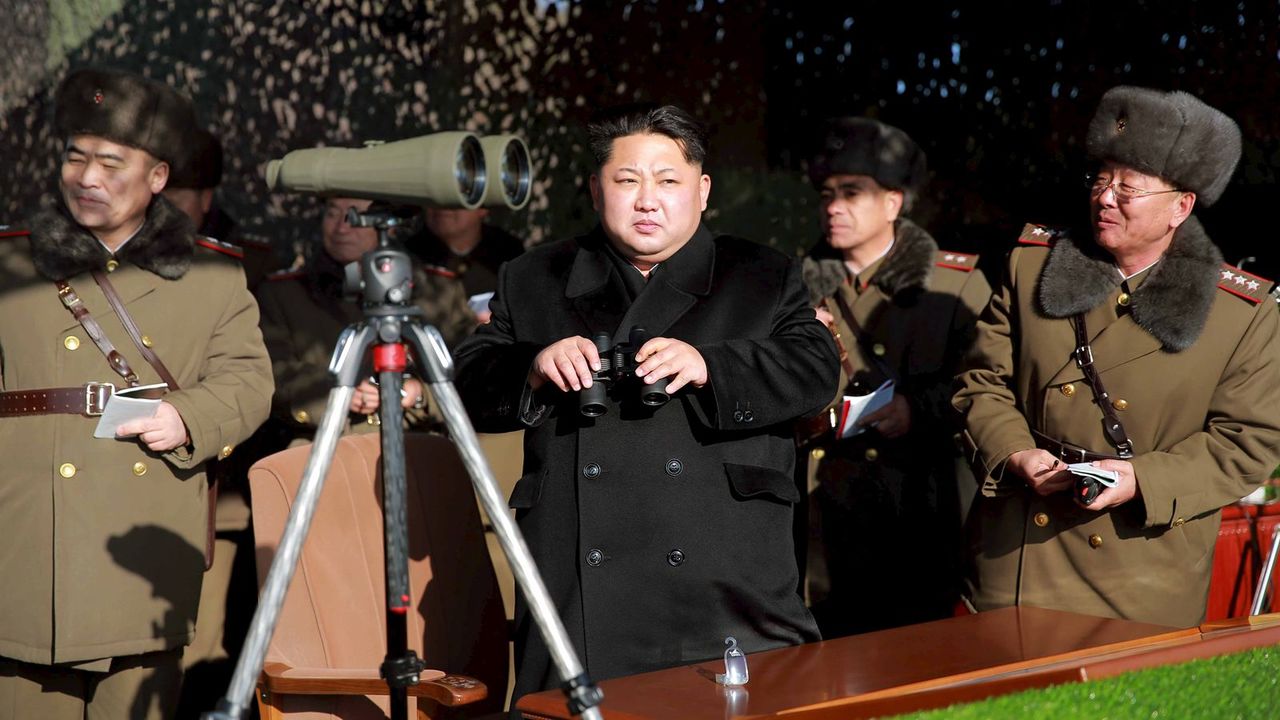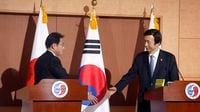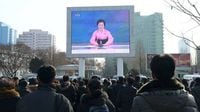
North Korea claims it carried out an underground hydrogen bomb test on Wednesday, January 6. What was the country’s intention, and how should Japan and its allies react to the situation? We talked to Dr. John Park, an Adjunct Lecturer at the Harvard Kennedy School and a Research Associate at Massachusetts Institute of Technology.
The Pentagon and the US intelligence agencies have cast a lot of doubt that the North Koreans detonated a hydrogen bomb. What's the key evidence that they're using to make that assessment?
At this point, it is an early assessment. It's not conclusive on their part, but one big indicator that they're focusing on is the seismic activity. At 5.1 on the Richter scale, their conclusion is that for a thermonuclear device that's too low for the seismic activity reading. They will be increasing efforts, including over-flights, to try to detect any nuclear particles that can be identified as by-products of a fusion reaction.
Are those methods reliable to determine the type of device North Korea detonated?
The consensus that it was not a thermonuclear device is based on the relatively low-level of seismic activity. But that in itself does not absolutely rule out the possibility it was something other than a more traditional atomic device. A greater level of certainty would come from the detection of the particles that would be the by-products of the fusion reaction.
There is also a big question mark about what exactly the North Koreans are trying to achieve with this particular test. The big debate going on in the technical community right now is whether this was essentially the first test leading up to a two stage thermonuclear test?
There is a considerable number of technical experts focusing on this notion of Tritium that could have been injected into this particular test in order to boost the yield. That would be a very important step toward full trial test of a hydrogen bomb component that would get to this fusion reaction, where the explosive yield is thousands of times larger than a fission reaction.
If there were tritium involved in this detonation, would that be detectable?
Technically, the experts are saying yes. The unknown factor is how well the North Koreans have sealed the underground tunnel where the test was conducted. In the previous test in 2013, the tunnel was fairly well sealed, and efforts to detect using atmospheric sticker claims were inconclusive.
With this fourth test, if the North Koreans have replicated that aspect of success of being able to seal the tunnel, then we'll never know at this stage. That brings us back to the biggest piece of evidence indicating it was not a thermonuclear device: the relatively low level of seismic activity.
Just to clarify: by two stage you mean the detonation of a fission reaction which would then ignite the fusion reaction.
That's correct. It's tricky, in part because the pronunciation of “fission” and “fusion” is so similar.But but the fission is the upper reaction you get with an atomic bomb, either enriched uranium or plutonium. Fusion is what you get with hydrogen.
Move toward a miniaturized atomic weapon
Is it safe to assume that they were testing something new? What would be the reason for them to test another atomic device?
The bar is really high. It is very tricky technically to do a thermonuclear test. Right now, a strong consensus is emerging that North Korea did not do a thermonuclear test.
The big picture is that North Korea completed a very effective fourth nuclear test as an atomic bomb. Even if it's a boosted fission bomb, this could be a very troubling move toward a miniaturized atomic weapon that could fit on a ballistic missile. That puts the North Koreans closer to the idea of putting it on top of the boosted missile.
That's the piece of it that is really being over-shadowed by the focus on Pyongyang’s claim to have detonated a thermonuclear device. A lot of government statements convey a virtual sigh of relief that it was not a thermonuclear device. I think that is misguided.
Why would the North Koreans claim to have detonated a thermonuclear device when it is relatively easy to prove they did not?
After Pyongyang conducted its first nuclear test in October 2006, the North Korean leadership issued remarkable propaganda aimed at domestic audiences. North Korea proudly proclaimed to its people that the country had joined the ranks of the United States and the Soviet Union. It didn't mention that other countries have developed atomic weapons.
The North Koreans tend to dismiss other nations with atomic weapons, with the line that the U.S. and Russia (the old Soviet Union) had essentially given their technology and other components to their allies, which mean they do not really count. Pyongyang presents itself as having joined the elite of the elite.
By announcing that they have successfully tested a thermonuclear device, they're putting themselves in the elite of the elite of the elite club. This casts Kim Jung Un as an effective leader. I think that's how the propaganda's planned out in North Korea.
Kim is reported to be 33 years old now. For someone this young to have achieved this accomplishment, I think it also helps in terms of consolidating his position. The other part of it is the North Korean Workers Party will be having a major party conference in May. To have this kind of achievement under their belt, it is something that is remarkable in terms of the direction, the positive direction that Kim Jung Un is portrayed to be taking North Korea.
Is there any chance that scientists and engineers, under pressure from Pyongyang to produce results, falsely told the leadership that it was an H bomb?
Some analysts have raised that as a hypothesis. It would be more plausible if some of the scientists involved had defected.. But they have not. That type of fraud would almost surely be uncovered, and led to severe punishment for the perpetrators, which makes the idea a bit curious.
Real danger: Miscalculations by both North and South
From a strategic point of view, does an H-bomb really improve North Korea's position?
Here's where I think we get into the very dangerous territory of perception as reality. There have been some very, very alarming North Korean conventional attacks on South Korea in recent years. Some would view it as reckless on the outside.
This is how the North Korean narrative unfolds. Yes, South Korea has superior conventional technology. You know you're looking at this balance of power on the Korean peninsula but that's not the metric. It's not superior conventional weaponry.
It's whether or not North Korea, or South Korea has nuclear weapons. The South does not. The North Korean leadership sees the country as the Peninsula’s sole possessor of nuclear weapons.
Thus, the North Koreans conclude: ‘Who would dare, especially the South Koreans, to retaliate against a nuclear weapons state. This embolded demeanor in Pyongyang is a source of concern. It carries with it the risk of miscalculation, and the risk of conflict escalation.
Why? The South Korean view is, if there's another conventional attack on South Korea, there will be no proportional response. The gloves come off and very quickly South Korea claiming to control the escalation ladder would retaliate in a way that they want to decisively end the problem. That's where it feeds into something that I think is quite dangerous: North Korean miscalculations but also South Korean miscalculations.
The second danger in the strategic sense is the noticeable increase in calls from military, government, and political party circles for the reintroduction into South Korea of U.S. tactical nuclear weapons.
When you look at the situation right now, they're increasing cause for the South Korean leaders in the military state and some of the political leadership in some of the political parties there, calling for the reintroduction of U.S tactical nuclear weapons into South Korea. They're basically saying there's a gap here. Yes, South Korea enjoys extended nuclear deterrence from the United States. But South Koreans would like to heighten deterrence by bolstering the American presence in South Korea.
The third strategic concern is China, which is certainly alarmed by North Korea’s defiant decision to test another nuclear device. China is certainly alarmed by the developments, but their thesis remains that North Korea is still a poor, desperate country trying to get trying to get the attention of the U.S. to broker some sort of peace treaty and some sort of deal. I think the local layers of anger and frustration on the Chinese side is pretty deep.
What policy options are available to the U.S and Japan?
There is a strong consensus among the UN security council’s five permanent members that North Korea’s recent nuclear test deserved condemnation. There will surely be another round of strategic national unilateral sanctions. Also there will be that call on North Korea to abide by it's commitments and responsibilities.
I think there is an opportunity to sanitize the commercial relationship between China and North Korea. What I mean by sanitize is not to stop the commercial trading because the Chinese won't do that. They're very, very concerned about weakening this very fragile regime and contribute to state collapse, regime collapse. They don't want to pick up the pieces and they don't want the power vacuum in North Korea.
The Chinese leadership is in a very difficult position, since limiting the flow of “dual use” (commercial and military) technology and components to North Korea would require coordination with Japan, the U.S., and South Korea, which China will be reluctant to do.
Training of customs inspectors in China also quite important, and discrete cooperation with Japan, the U.S., and South Korea would help. The key is to impede the flow of dual use components into the North Korea missile programs. This has not really been tried yet. But there is a common anger and frustration in the U.S., China, and Japan over North Korea’s recent nuclear test. How you translate that into action is a matter of leadership.




